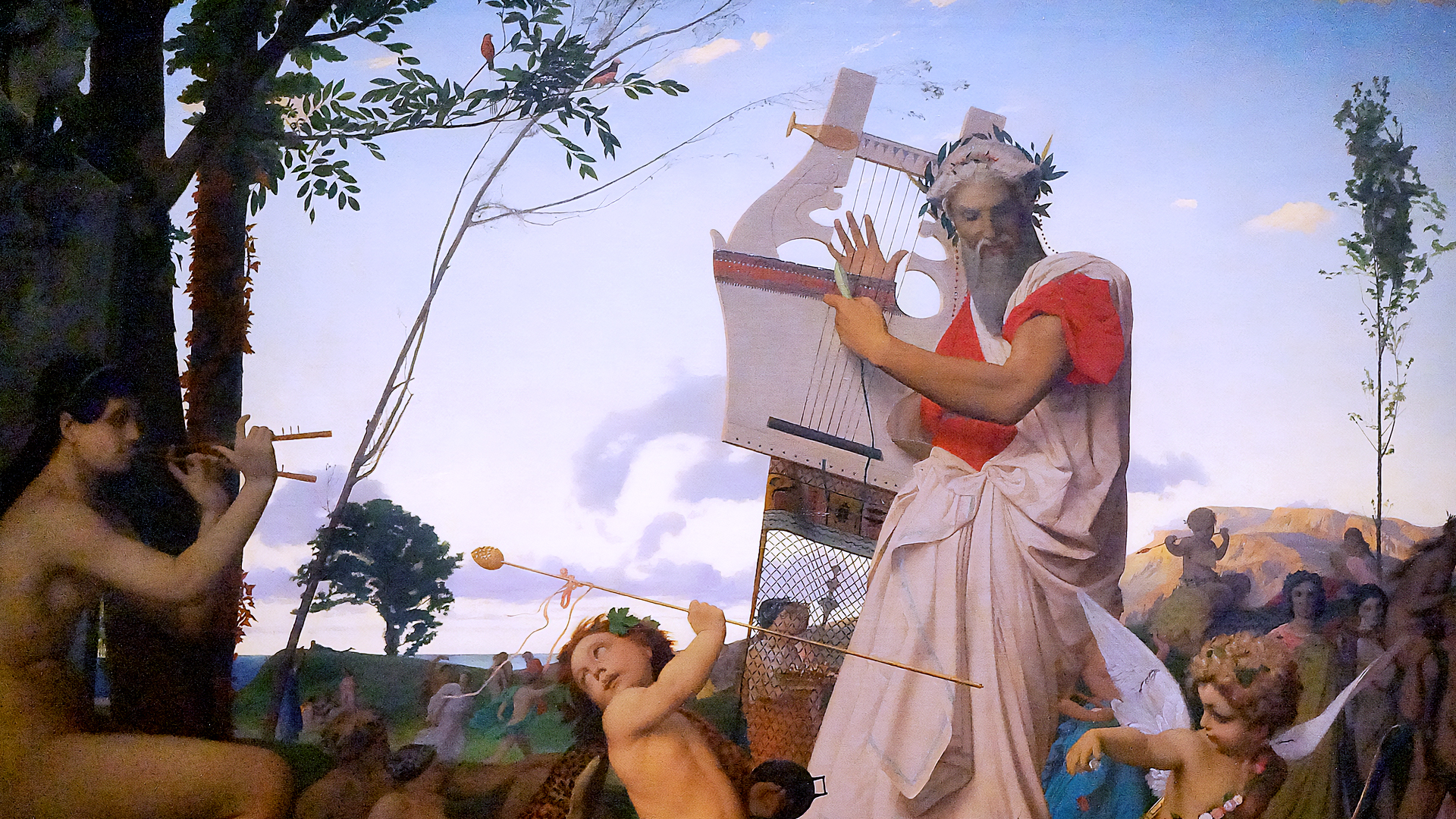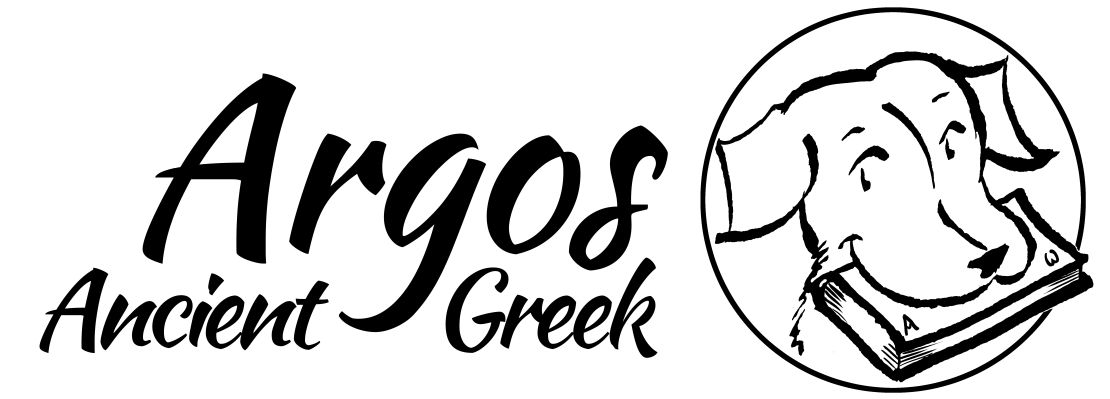
By Lee Lanzillotta
I’m pretty sure most people don’t start studying Ancient Greek because they just love reading Anacreon (Ἀνακρέων) in translation. Homer, yes, or Sappho, but not our buddy Anacreon, the vaguely cheeky uncle of Greek lyric poetry. Of course, when you’re first graduating from graded readers and Athenaze to the real stuff, you might not yet have the skills for something as difficult as Homer. Diving right into the wine-dark sea of words that is the Odyssey or the Illiad may be possible for a very devoted student, but not for someone as, well, laid-back and ditzy as myself.
I first came across Anacreon in the summer course in which I learned the basics of Ancient Greek, where he was amongst the first poets we read. This brief introduction to his work gave me the impression that he was a lot less intimidating to tackle than dense philosophical texts or even other poets. After stumbling across an old Loeb of Anacreon’s verses at a charming little bookstore in – fittingly – Greece, I ended up reading many of his poems with Jenny. Anacreon, as I quickly learned, tends to focus very heavily on joys such as love, dancing, and drinking. He writes charming, pleasing little poems. My personal favorite is the one in which Eros is stung by a bee. Anacreon’s persona is that of an older gentleman who still loves to dance and flirt – he may be grey in respect to his hair, but he remains young at heart. Some of the verses do veer into being a little risque, but certainly not to the depths of vulgarity reached by Latin writers such as Martial or Plautus.
Anacreon’s poetry is generally short, repetitive in terms of vocabulary, and not too complex. These are all qualities I seek when looking for something to read that won’t intimidate me. I also find that being able to read a poem from beginning to end in a single sitting gives me a sense of accomplishment that helps compel me to continue my studies. Many of Anacreon’s poems take up less than a page in the Loeb edition. However, I did feel that his schtick got old quickly. I soon began to long for the more philosophical works that had driven me to study Greek in the first place. Still, I enjoyed Anacreon, and plan to return to his work next time I seek some charming little verses to read on an idle, sunny afternoon.
Eros & the Bee (Anacreontea fr. 35)
This poem belongs to the Ἀνακρεόντεια, a collection of drinking songs and other lighthearted poetry in the tradition of Anacreon.
| Ἔρως ποτ’ ἐν ῥόδοισι | Eros once in the roses |
| κοιμωμένην μέλιτταν | a sleeping bee |
| οὐκ εἶδεν, ἀλλ’ ἐτρώθη. | did not see, but was wounded. |
| τὸν δάκτυλον παταχθείς | Stung in the finger |
| τᾶς χειρὸς ὠλόλυξε, | of his hand he cried out, |
| δραμὼν δὲ καὶ πετασθείς | running and flying |
| πρὸς τὴν καλὴν Κυθήρην | to beautiful Kythera (Aphrodite) |
| ‘ὄλωλα, μῆτερ,’ εἶπεν, | he said: “It’s over, mother! |
| ‘ὄλωλα κἀποθνήσκω· | It’s over with me and I am dying! |
| ὄφις μ’ ἔτυψε μικρός | A little snake struck me, |
| πτερωτός, ὃν καλοῦσιν | with wings, which the farmers |
| μέλιτταν οἱ γεωργοί.’ | call bee.” |
| ἃ δ’ εἶπεν· ‘εἰ τὸ κέντρον | But she (Aphrodite) said: “If the sting |
| πονεῖς τὸ τᾶς μελίττας, | of the bee hurts you, |
| πόσον δοκεῖς πονοῦσιν, | how much do you think do those hurt, |
| Ἔρως, ὅσους σὺ βάλλεις;’ | Eros, whom you strike?” |




